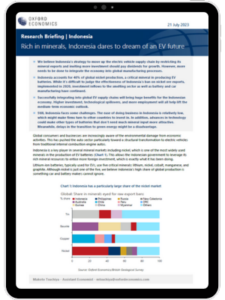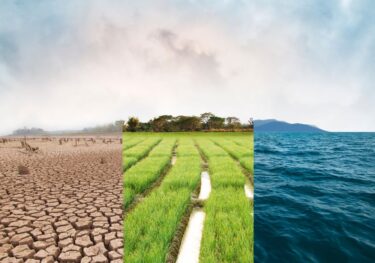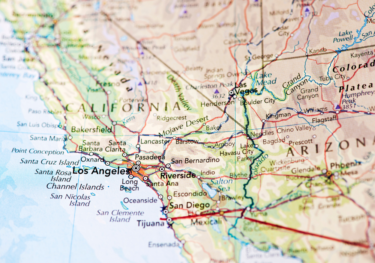Rich in minerals, Indonesia dares to dream of an EV future

We believe Indonesia’s strategy to move up the electric vehicle supply chain by restricting its mineral exports and inviting more investment should pay dividends for growth. However, more needs to be done to integrate the economy into global manufacturing processes.
What you will learn:
- Indonesia accounts for 40% of global nickel production, a critical mineral in producing EV batteries. While it’s difficult to judge the effectiveness of Indonesia’s ban on nickel ore exports, implemented in 2020, investment inflows to the smelting sector as well as battery and car manufacturing have continued.
- Successfully integrating into global EV supply chains will bring huge benefits for the Indonesian economy. Higher investment, technological spillovers, and more employment will all help lift the medium-term economic outlook.
- Still, Indonesia faces some challenges. The ease of doing business in Indonesia is relatively low, which might make firms turn to other countries to invest in. In addition, advances in technology could make other types of batteries that don’t need much mineral input more attractive. Meanwhile, delays in the transition to green energy might be a disadvantage.
Tags:
Related posts

Post
Building a more successful business through resilience
To really understand exposure to risk, you need to look at how a business interacts with the broader economy.
Find Out More
Post
Nature scenarios: What changing environmental risks mean for businesses
Quantifying the economic impacts of nature change means considering double materiality; economic activities can both impact and depend on nature.
Find Out More
Post
Wildfires will be a big issue for LA, but a modest drag on the US
The impact from the wildfires in the Los Angeles area on the US labor market and GDP will be small, potentially shaving 0.2ppts to 0.3ppts off Q1 GDP.
Find Out More